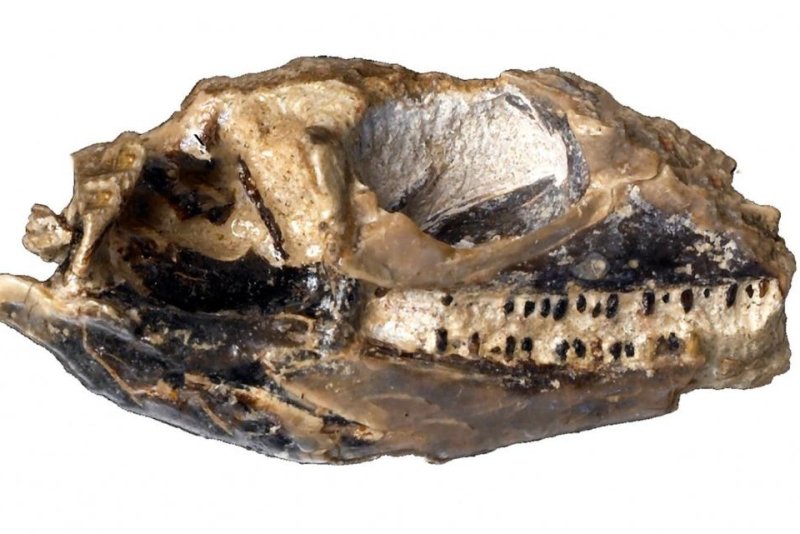The fossil reveals the tiny teeth and head of the ancient Jesus lizard. Photo by Conrad/PLOS ONE
NEW YORK, July 2 (UPI) -- Researchers have discovered an ancient relative of the modern Jesus lizard, named for its ability to walk on water as in the biblical story of Jesus Christ.
"This is the modern Jesus lizard living 48 million years ago," Jack Conrad, a research associate at the American Museum of Natural History, told the Washington Post. "It's very, very similar. It tells us this group has been around a lot longer than we thought, and it diversified a lot more than we thought."
The lizard's remains were discovered by museum curator Christian Sidor in the Bridger Formation, a section of the Rocky Mountains that runs through Wyoming. The fossil is five million years older than the previous oldest-discovered Jesus lizard. While the fossil only reveals the head and upper extremities, researchers believe the similarities between it and other Jesus lizards are enough to expect water-worthy feet.
The newly discovered species has been named Babibasiliscus alxi.
"The generic name is meant to honor the Shoshone people who originally inhabited the areas in which the specimen was discovered," Conrad wrote in the new paper describing the lizard, published this week in the journal PLOS ONE.
"Babi" is the Shoshone word for "older male cousin," a reference to the new species' relation to other Jesus lizards.
Today, there are several species of Jesus lizards, including iguanas and chameleons. Their buoyant, webbed feet allow them scamper across the surface of water. Modern water-walkers prefer the warm, wet weather of equatorial Central and South America, ranging from Mexico south to Colombia.
The discovery of the 48-million-year-old Jesus lizard suggests Wyoming once hosted a warm, tropical climate.
"Given our current period of global climate fluctuation, looking to the fossil record offers an important opportunity to observe what is possible," Conrad said in a press release, "and may give us an idea of what to expect from our dynamic Earth."















